Details for the current PhD and MLitt students
Maynooth University's History department is home to an exciting group of innovative and engaged postgraduates. If you are interested in joining us, please have a look at our courses and apply.
Maynooth University's History department is home to an exciting group of innovative and engaged postgraduates. If you are interested in joining us, please have a look at our courses and apply.
| Degree: | |
| Email: | |
| Thesis title: | |
| Short synopsis of thesis: | |
| Supervisor: | |
| Co-Supervisor (if applicable): | |
| Academic biography: | |
| Research interests: | |
| Publications: | |
| Conferences: | |
| Awards/Scholarships: | |
| Teaching: | |
| Professional associations/affiliations: | |
| Social Media: |

| Degree: | PhD |
| Email: | [email protected] |
| Thesis title: | The four Irishmen among the ‘Seven Men of Moidart’: an investigation of their role in Jacobite politics and intrigue, c.1710-c.1780?’ |
| Short synopsis of thesis: | Prince Charles Edward (Bonnie Prince Charlie) landed at Moidart, Scotland, in 1745 to stage an uprising to restore his father James III to the English throne. His chief advisors comprised of seven men including four Irish, known as the ‘Seven Men of Moidart.’
My thesis presents an in-depth examination of the operations, networks, alliances, and influence of these four Irish Jacobite émigrés, evaluating their wider significance in shaping the course of Jacobite politics and intrigue during the decades preceding the failed uprising in 1745 and tracing their careers afterwards. It examines the identity and Jacobite affiliation of the Irishmen by looking at their background and how they became involved in the Jacobite cause. I will investigate the nature and extent of their involvement with the Stuarts prior to the 1745 uprising, along with any connections they had to the Jacobite court-in-exile which brought them to prominence. I also consider why Charles Edward chose these particular men to be part of his inner circle of advisors and ascertain how influential they were in Jacobite politics. Research of the extensive correspondence to and from these men in the Stuart and Cumberland papers, will determine how they interacted with the other three men within this group and with each other to establish the impact of their influence. The thesis also features a study of their fate and explores what became of them following the failed uprising in 1745. |
| Supervisor: | Professor Marian Lyons |
| Co-Supervisor: | Dr David Murphy |
| Academic biography: | My interest in Irish Jacobite history stemmed from archival research I undertook as part of the SPUR programme (Summer Programme for Undergraduate Research) at Maynooth University, in 2020. I worked with Professor Lyons in the History Department as my mentor, researching Irish Jacobite émigrés in Saint Germain-en-Laye, France during the period 1687-1725. This research involved systematic mining of online parish registers held at the Archives Départmentales des Yvelines and is part of a larger ongoing project I am currently still involved in, under Professor Lyons’ mentorship. Through this research I developed a competency in reading French archival material and paleography. I developed my interest in Jacobite history through my final year capstone dissertation titled ‘Mary of Modena, Queen consort in exile: a study of her role in harnessing Catholic networks to secure assistance for Irish Jacobite émigrés, 1689-1720.’
I undertook a Master’s Degree to prepare me for the challenge of doctoral study. My Master’s thesis ‘A study of three Black lives in eighteenth century Ireland: Rachel Baptist, Tony Small, and Olaudah Equiano’ provided me with invaluable training for undertaking similar studies in the proposed PhD thesis. |
| Research interests: | Jacobite history, Irish diaspora, politics, intrigue, networks, identity |
| Awards/Scholarships: | I was awarded a John and Pat Hume Doctoral Scholarship fee waiver for the four years of this doctoral programme. In 2021 I was awarded a Maynooth University Taught Master’s Scholarship and a History Department Scholarship. I won a place on the highly competitive SPUR programme (Summer Programme for Undergraduate Research), at Maynooth University in 2020. |
| Teaching: | Since 2021 I have been a Graduate Teaching Assistant in MU History Department. I tutored first years in 2021-2 and am currently tutoring second years. I also taught a history class and two resource classes and acted as a substitute teacher when required in the Mercy Secondary School, Thomas Davis Street West, Inchicore, Dublin - (January-May 2022). |
| Professional associations/affiliations: | I am a member of the 1745 Association and the Genealogical Society of Ireland. I attend fortnightly Jacobite Studies Trust Virtual Workshops, at which established and early career scholars present their research. |
| Social Media: |

| Degree: | PhD |
| Email: | [email protected] |
| Thesis title: | Picturing the Irish professions, 1760-1830 |
| Short synopsis of thesis: |
My PhD project interrogates the different contexts in which depictions of the professions in Ireland were created and disseminated via image and text during the period 1760-1830. It aims to highlight how lawyers, doctors, clerics and military officers were among the most prevalently represented cohorts in pictorial media and literature of this period.
This was a time of urban renaissance, the rise of the art market, a burgeoning print trade, and the commercialisation of leisure. However, while individual case studies have reconstructed the lives of key members of the legal, medical, clerical and military professions, there has been no sustained analysis of representations of this cohort in eighteenth and early nineteenth-century Ireland, specifically in terms of how they were pictured, by themselves and others, and what this reveals about contemporary attitudes, biases, and networks. This dissertation is an attempt to address this lacuna by examining whether these impressions of the professions reveal patterns of continuity and/or change. To what extent were developments in Ireland comparable to, or distinct from, developments elsewhere, namely Britain? What do the multiple forms of representation, from lofty commissioned portraits to affordable satirical prints reveal about Irish professionals during the eighteenth and early nineteenth century? By examining pictorial representations of the professions through paintings and prints as well as literary depictions in novels, plays and biographical accounts, this research intends to provide a more rounded view of an important aspect of eighteenth-century and early nineteenth-century Irish society. |
| Supervisor: | Dr Alison FitzGerald |
| Academic biography: | I am a PhD student at the Department of History, Maynooth University (MU). Prior to the PhD, I completed a BCL in Law and History and a MA in Irish History at MU. During my undergraduate and postgraduate studies I became increasingly interested in Irish material culture and art history, specifically on how objects, have the potential to inform us about individuals and groups in the past. As part of my MA, I wrote a dissertation on how members of the Irish legal profession were represented in eighteenth and early nineteenth-century Ireland, which was awarded First Class Honours. While carrying out research for this project, I soon realised the existence of a gap in the literature discussing how the Irish professional classes were depicted in images and texts during this period. This experience provided me with the necessary skills and preparation to undertake a doctoral project. |
| Research interests: | Eighteenth-century Ireland, material culture, representation, commercialisation, professional classes, art |
| Publications: | ‘Merry Christmas in the Baron’s Hall’ - how an Irish artist painted an English Christmas, Maynooth University’s Spotlight on Research, December 2022. |
| Awards/Scholarships: | Maiben Gilmartin Travelling Scholarship (2022), MU Taught Masters Scholarship (2022), Thomas Dammann Junior Memorial Scholarship (2023), John & Pat Hume Scholarship (2023). |

| Degree: | PhD |
| Email: | [email protected] |
| Thesis title: | Ireland and the Napoleonic Wars |
| Short synopsis of thesis: | My research focuses on Ireland and the Napoleonic Wars (with special reference to Irish soldiers serving in British and Scottish regiments during the period 1808 -1815.) My research also examines the impact of military service on Irish society at the political, social and economic levels during and immediately after the Napoleonic wars in 1815. I employ two statistical databases to provide an empirical basis as to the actual number of Irish men who served under Wellington during the strategically important Peninsular and Waterloo campaigns. One database will focus on Irish-born officers, predominantly from the Protestant Ascendancy, and the other Irish enlisted men, predominantly Catholic. The officers’ databases will include English, Scottish and foreign-born men to allow for comparative analysis by nationality of service particulars such as social and regional backgrounds, commission and promotion trends, casualty rates and post-Napoleonic war careers. The enlisted men’s database will focus on Irish-born men only. An overlooked aspect of military service during the period is the involvement of women, particularly the wives, partners and families of serving Irish soldiers. While many of the original source material such as diaries and memoirs are written by the soldiers themselves, the experiences of these women can be heard both in memoirs and through the official military documentation. The main primary sources of data for the statistical databases are War Office records held in the National Archives in Kew, London, and regimental records held in various museums in Ireland and the United Kingdom. |
| Supervisor: | Dr David Murphy |
| Academic biography: | I have published a number of articles in peer-reviewed journals as listed below. In addition I have presented my research at a number of conferences in Ireland and the United Kingdom and on podcasts. As a part-time PhD research student in full-time employment I have not undertaken any teaching assignments. |
| Research interests: | Military History, Strategy, War and Society, French Revolutionary and Napoleonic Wars |
| Publications: | Wellington’s Irish: a socio-economic study of Irish enlisted men in the British Army, 1808-15 in Retrospect – Journal of the Irish Historical Students’ Association 2022. The contribution of the Irish soldier to Wellington’s Peninsular Army, 1808 – 1814 in Journal of the Society for Army Historical Research, 98, no. 394, Autumn 2020. The contribution of the Irish soldier to the British Army during the Peninsula campaign 1808-1814 in Journal of Military History and Defence Studies, 1, no.1, January 2020. Voices from Ireland, The Napoleonicist Podcast 31 March 2021. Wellington’s Irish Army, The Napoleonicist Podcast 10 March 2021. What has the British army ever done for us?, RTE Brainstorm article, 4 November 2020. |
| Conferences: | The Irish Soldier and the British Army 1793-1815 at The Irish soldier in the British Army c. 1680-1922, National Army Museum, London, 5 July 2022 Ireland’s First Great War – A socio-economic study of Irish military service in the British Army during the Napoleonic Wars 1808-1815 at the Irish Historical Students’ Association Conference, 11-13 March 2021 British strategy and Irish manpower during the Napoleonic Wars, Ormonde Military History Society, 12 January 2021 ‘The devil is in the detail’: Wellington’s Irish – Statistical analysis of Irish officers and men in English and Scottish regiments, War and Peace in the Age of Napoleon – British Commission for Military History, Sir Michael Howard Centre for the History of War, King’s College London, 13-14 September 2019 The Irish in Wellington’s Peninsular Army, 1808-1814, The Annual F. Glenn Thompson Lecture, National Museum of Ireland, 18 November, 2018 |
| Awards/Scholarships: | John and Pat Hume Scholarship |
| Professional associations/affiliations: | The Military History Society of Ireland Ormonde Military History Society Society for Army Historical Research |

| Degree: | PhD |
| Email: | [email protected] |
| Thesis title: | Proletarian Nations: Examining the Relationship between Irish Nationalism and Italian Fascism, 1919-1939 |
| Short synopsis of thesis: | This project is a comparative and transnational study of the relationship between Irish nationalism and Italian fascism in the interwar period, examining also how it changed over time. It is intended to lead to further study of the fringes of transnational fascism. After failing to gain the right to self-determination in the Paris Peace Conference, Irish nationalists found an ally in Italian fascists who were furious that their allies did not give Italy all of the land it had hoped to gain after the First World War. During the Irish War of Independence a friendship was formed between Dáil Éireann and prominent ultranationalists like the poet and Comandante of Fiume Gabriele d’Annunzio, and former socialist and future Duce Benito Mussolini, who condemned British imperialism and attempted to smuggle guns for the IRA. I will examine how fascism can be both anti-colonial and colonial through the lens of the Irish context. While it made sense for Italian nationalists and fascists to support the Irish struggle for independence, my project asks why, in return, did some members of the Irish public support Italy’s imperial ambitions? Is this reflective of a general public sympathetic to fascism, or did some Irishmen find solidarity with the Italians through their common Catholic faith? |
| Supervisor: | Dr John Paul Newman |
| Co-Supervisor (if applicable): | Dr Raul Cârstocea |
| Academic biography: | I am a first year PhD student at Maynooth University with an interest in early 20th century Irish and Italian history, particularly Italian modernism and fascism. Prior to the PhD, I completed a BA in single major history (2022) and an MA in European history (2023) at Maynooth. In my final year of the BA I developed an interest in modern Italian history and wrote my final year thesis on the avantgarde art movement, Italian Futurism and its relationship with war, illustrating why and how they glorified war as “the sole cleanser of the world” and how it became their reckoning with the deaths of prominent members in the First World War and a schism during the conflict. For my MA dissertation, which was awarded First Class Honours, I examined the Arditi, an assault unit created by the Italian army during the First World War. I demonstrated that although the Arditi were formed for a singular military purpose, they were ideologically diverse. Several political actors viewed the group as “the new men of Italy”. These actors included the leader of the Futurists F.T. Marinetti, Gabriele d’Annunzio and Benito Mussolini. It was during this research that I became interested in Italian nationalists’ views of Ireland during the War of Independence, which led to me examining Irish documents during my research trip to Fondazione il Vittoriale degli Italiani in Lake Garda. |
| Research interests: | Irish nationalism, Italian fascism, transnationalism, transnational fascism, 20th Century European, modernism, fascism, anti-fascism, colonialism, diplomacy |
| Conferences: | |
| Awards/Scholarships: | 2022: MU Maiben Gilmartin Travelling Scholarship 2023: MU Raymond Gillespie Award for best MA thesis 2024: MU John & Pat Hume Doctoral Scholarship |
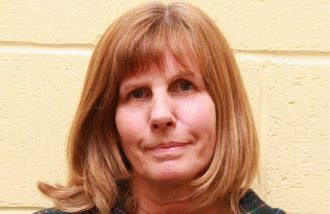
| Degree: | PhD |
| Email: | [email protected] |
| Thesis title: | The Implication of the Dangerous Lunatic Act 1838 for committal numbers to Irish District Lunatic Asylums |
| Short synopsis of thesis: | In 1958 Ireland had a population of almost three million people, 21,000 of whom were confined in the 22 district lunatic asylums that were spread across the country. This resulted in Ireland, at that time, having the highest number, per capita, in the world incarcerated in asylums. These shocking statistics were the direct result of one piece of legislation - the Dangerous Lunatic (Ireland) Act that was passed in 1838. The flawed terms and conditions of this Act led to unprecedented numbers being convicted as ‘dangerous’ lunatics, on the flimsiest of evidence. From then, mental illness became associated with ‘crime’, ‘danger’, and ‘threat to society’. It is possible that the stigma associated with mental illness in Ireland today may have emerged at that time.
The main aim of my research is to investigate why so many were committed under this legislation in Ireland but not elsewhere, who played the key role in committals, and whether contemporary attitudes to mental illness originated at that time. I will be using the records of the Richmond Asylum in Dublin to tell the stories of the lost lives of the many men and women, confined under dangerous lunatic legislation, that have yet to be told. It is my intention to address this issue in the hope that it may better help us to understand the stigma surrounding mental illness that has remained with us into the present day. |
| Supervisor: | Dr Dympna McLoughlin |
| Academic biography: | I completed a BA (Honours) in Humanities at Dublin City University (DCU) and an MA in History with the Open University. I am now in the second year of the PhD in History programme at Maynooth University History under the supervision of Dr Dympna McLoughlin. I have also completed courses in mediaeval history, local history and oral history at St Patrick’s College, Carlow. |
| Research interests: | Mental illness, nineteenth-century Ireland, family, children, social history, medical history, institutions, Ireland, oral history, women’s history, gender studies |
| Publications: | ‘Institutionalising insanity: Carlow District Lunatic Asylum and the rise of the Irish asylum system’ in Carloviana (2021). ‘A woman’s place’: gender perspectives and the District Lunatic Asylum in post-Famine Carlow’ in Carloviana (2022). ‘A stitch in time: Lady Harriet Kavanagh and the Borris lace industry, 1846-2021’ in Carloviana (2022). |
| Awards/Scholarships: | Third place in Maynooth University’s ‘3-Minute Thesis Competition’ (2022) Awarded Maynooth University Research Incentivisation Funding (2022) |
| Teaching: | I am a Graduate Teaching Assistant in MU History Department, working with first year undergraduates. |
| Professional associations/affiliations: | I am very interested in bringing history to wider audiences. I am PRO of Carlow Historical & Archaeological Society. In the past year I ran a pilot project through Carlow Historical & Archaeological Society introducing local history into primary schools in the Carlow area. I am Secretary and a founding member of Borris Lacemakers Group. This organisation has revived the traditional Irish craft of Borris lace that was founded by Lady Harriet Kavanagh of Borris House in County Carlow in 1847 to assist local women and to alleviate poverty during the Famine years. |
| Social Media: |
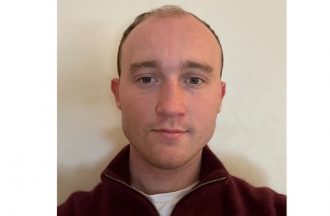
| Degree: | PhD |
| Email: | [email protected] |
| Thesis title: | The aristocratic senators of the Irish Free State: an exploration of influence, status and social dynamics, 1922-1937 |
| Short synopsis of thesis: | My proposed research will examine the role of the aristocratic senators during the Irish Free State from 1922 to 1937. These senators, distinguished by their aristocratic lineage, represented a minority group in a political landscape dominated by nationalist ideals. Nominated by W.T. Cosgrave to represent underrepresented minorities, these aristocrats were politically marginalized. The social makeup of the senators included 2 marquesses, 5 earls, 5 baronets, and 1 countess dowager. Despite their small number, aristocratic senators, exercised significant influence due to their expertise, experience, and social networks.
The project will explore how these senators contributed to governance, legislation, and industry matters, and how they navigated Ireland’s evolving identity as a member of the British Commonwealth. It will also investigate the aristocracy’s shifting role in Irish society, questioning whether their continued influence represented an aspiration for social elevation or reflected lingering colonial power dynamics. By examining Seanad transcripts, family papers, newspapers and other sources, this research aims to uncover why the aristocracy's contributions during this period have been largely overlooked. The study will also consider the broader implications of aristocratic influence, particularly how their role diminished as Ireland moved further away from British ties and embraced nationalist sentiments. Ultimately, this project will fill a gap in Irish historiography, offering new insights into the complex relationship between aristocratic privilege and the political evolution of the Irish Free State. |
| Supervisor: | Dr Ciarán Reilly |
| Co-Supervisor (if applicable): | Professor Terence Dooley |
| Academic biography: | I completed my International Bachelor of Arts in 2023, during which I spent an academic year at Charles University in Prague as an Erasmus student. I then completed a Master of Arts in Irish History in 2024. In my master's thesis, titled ‘The Life and Politics of Sir Thomas Henry Grattan Esmonde, 1862–1935’, I examined Esmonde’s significant role in Irish nationalism throughout a transformative period in Ireland’s history. Through this case study of Esmonde, one of the aristocratic members of the Free State Senate, my research revealed a significant gap in the historiography regarding aristocratic involvement in Irish politics during the Free State years. This finding inspired my PhD research, which aims to examine the broader role of aristocratic senators in the Irish Free State from 1922 to 1937. |
| Research interests: | Irish political history, Irish Free State, Seanad Éireann, Dáil Éireann, aristocracy, country houses |
| Conferences: | |
| Awards/Scholarships: | 2023: Stackallen Masters’ Scholarship 2024: Stackallen Doctoral Award |
| Social Media: |

| Degree: | PhD |
| Email: | [email protected] |
| Thesis title: | ‘The wounded soldiers of the Land War’: a social history of evicted tenants, 1879-1939 |
| Short synopsis of thesis: | Beginning with the Land War in 1879, evicted tenants were eulogised by Irish nationalists as ‘the wounded soldiers of the Land War’ for the hardship that they suffered. The politicisation of their plight was a central part of parliamentary nationalist politics and was championed by Sinn Féin during the revolutionary period. However, studies of the place of evicted tenants in Irish society and memory are limited. Questions remain regarding what happened to evicted tenants who remained in Ireland. Similarly, how they campaigned for reinstatement, their actions during the revolutionary period, and the position of evicted tenants under land legislation will require further exploration.
Over 3,000 evicted tenants were reinstated from 1903, many from the sites of the most infamous evictions such as the O’Callaghan estate, County Clare and the Clanricarde lands, County Galway. Their victories remain in the shadow of the evictions. Numerous exchanges occurred in the House of Commons and later in the Dáil about their circumstances. Leading political figures throughout the timespan of this project referred to the impression made on them by evictions. This study is the first systematic attempt to examine the history of evicted tenants of the Land War and to develop another important dimension to the long revolutionary period of 1879 to 1923. |
| Supervisor: | Professor Terence Dooley |
| Academic biography: | I completed a BA degree in Maynooth in 2020 and an MA in 2021. |
| Research interests: | Evicted tenants, landlord-tenant relations, agrarianism, land redistribution in modern Ireland |
| Publications: | ‘Arrant bolshevism’? The 1919 farm labourers strike in County Meath’ in Riocht na Midhe, xxxii (2021). ‘Back to the Land’: agitation and activism for land redistribution in County Meath, 1918-1932’ in Riocht na Midhe, xxxiii (2022). |
| Awards/Scholarships: | The Meath Archaeological and Historical Society’s post-graduate prize for 2022 MU John & Pat Hume Doctoral Scholarship, 2022 - |
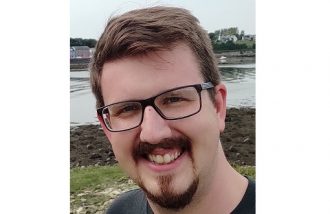
| Degree: | PhD |
| Email: | [email protected] |
| Thesis title: | A comparative study of Gort Poor Law Union in Galway with Ballyshannon Poor Law Union in Donegal between 1845 and 1851 |
| Short synopsis of thesis: | The focus of my thesis is a comparative study of Gort Poor Law Union in Galway with Ballyshannon Poor Law Union in Donegal between 1845 and 1851. Comparative studies of rural poor law unions are rare, and by examining similarities or differences between both unions I hope to add to current Famine historiography.
A secondary research focus examines the role, function, and impact of vice guardians and temporary poor law inspectors within both unions. Although vice guardians and temporary poor law inspectors were forcibly installed in more than one quarter of workhouses nationally during the period 1847-1851, their role and impact remain severely under-researched. Through comparative study, I hope to better illuminate the nuance found in administrative power structures and challenge the omission of vice guardians and temporary poor law inspectors from current Famine historiography. |
| Supervisor: | Professor Terence Dooley |
| Academic biography: | I am from Galway and completed a BA in English and Classical Civilisation from the University of Galway in 2010, and a certificate in History of Family and Genealogical Studies from UL in 2013. I was awarded the distinguished Lord Mayor of Dublin’s prize for a dissertation exploring the effects of the Great Famine in Gort, Co. Galway in 2019. This dissertation became the basis of my current project. I work full-time as a professional genealogist and research the Irish diaspora daily. I am passionate about several broad aspects of Irish life in the first half of the nineteenth century, particularly the history of agrarian resistance, crime and punishment, landed estates, the Irish Poor Law, chain migration, and sport history. I am also interested in promoting genealogy and history through community engagement, reflected in my experience of giving several public lectures over the past few years. |
| Research interests: | Comparative Study, Prosopography, Great Irish Famine, Irish Poor Law, Poor Relief, Institutional History, Poverty, Agrarian Resistance, Landed Estate, Quantitative Data Analysis |
| Conferences: | Researching Workhouse Ancestors during the Famine, Clare Roots Society, January 2021 “Vice Guardians: Examining the forgotten custodians of the Famine poor 1847-1851”, Irish History Students Association, February 2022 |
| Professional associations/affiliations: | The Society for the Study of Nineteenth-Century Ireland Economic and Social History Society of Ireland Galway Archaeological and Historical Society Genealogical Society of Ireland |
| Social Media: |

| Degree: | PhD |
| Email: | [email protected] |
| Thesis title: | Continuity and change in County Kildare and Irish land usage, land ownership and rural society 1857 – 1955 |
| Short synopsis of thesis: | My research project addresses the evolution of land usage, land ownership and rural society in County Kildare, and the island of Ireland, during the period from 1857 to 1955. Much of the extensive historiography of this period focusses on the transfer of land ownership and the linkages between the land question and the national question, and not on land use. The research project will focus on Kildare in detail but will also compare and contrast the Kildare experience with that of the wider Irish agricultural sector. Kildare was selected for the research project as it was one of the two Irish counties, Meath being the second, which specialised in the fattening of beef cattle for export to the British market which were earlier purchased from dairy farms in other counties. As a consequence the landscape, rural economy and society of Kildare were dominated by large commercial farms and not by small scale peasant holdings. The Agricultural Statistics collected by the British administration from 1847 until 1921, and from 1922 by the Irish administration, constitute the main primary source which will be used. These statistics were used by earlier scholars during the period from 1960 to 1995 to review the development of the Irish agricultural sector at a national level. However no detailed examination of this unique archive has been undertaken since the development of personal computers and software from 2000. The statistical sources will be supported by additional documentary sources, contemporary newspaper reports, diaries and estate books of accounts. |
| Supervisor: | Professor Terence Dooley |
| Co-Supervisor (if applicable): | Dr Ciaran Reilly |
| Academic biography: | For my first degree I studied civil engineering in UCD (Dublin) during 1976-80 graduating with First Honours. I then received an Irish government scholarship to study Ocean Engineering in UCL (London) where I completed an MSc in 1981 which was followed by a period of employment in the North Sea oil industry. During 1986-88 I undertook an MBA in London Business School and graduated with First Honours. Between 1988 and 2021 I worked in a wide range of roles in strategy development, general management and financial analysis for a number of Pan European industrial companies. Upon retirement in 2021 I joined the MA course in Military History and Strategic Studies in Maynooth University. The subject of my MA thesis was the United States Army Air Force bombing campaign against the Leuna synthetic fuel plant in Eastern Germany during 1944-45, and the German response. As part of my researches I studied the original weekly damage repair reports prepared by the Leuna plant management which are held in the Saxony state archives and which had not been previously interrogated by historians. My thesis was awarded a First Honours partially reflecting my use of these previously overlooked sources. My PhD project follows a similar approach whereby I will interrogate an extensive collection of numerical data comprising the Irish Agricultural Statistics from 1847 to 1955. These statistics form a unique archive on a worldwide basis and have been only lightly accessed by previous researchers. |
| Research interests: | Agricultural history, Petrochemical industry history, use of statistical and numerical data to explore the past |
| Publications: | The United States Army Air Force Bombing Campaign against the Leuna synthetic fuel plant in 1944-45 and the German response, in Journal of Military History and Defence Studies, Vol. 4, No. 1 (March 2023), pp 116-160. |
| Awards/Scholarships: | |
| Social Media: |

| Degree: | PhD |
| Email: | [email protected] |
| Thesis title: | The Lifecycle of Rural Children in Modern Ireland: A Case Study of Birth, Life and Death in County Donegal, 1850-1950 |
| Short synopsis of thesis: | This thesis seeks to uncover the reality of rural childhood experience in County Donegal, from 1850-1950, by adopting a life-cycle approach. A social history of rural childhoods in Ireland is yet to be written and my thesis seeks to fill that void with a case study of Co. Donegal. This research will consider all experiences of rural childhood while analysing the disparity of experience among children of different genders, classes, religions and socio-economic backgrounds. Themes such as agency, institutionalisation, crime, death and disease, education, migration, labour, childhood relationships and memory will be considered as the conceptual framework.
Donegal is situated on the periphery of Ireland, on the western seaboard, and children who were born and raised in the county essentially lived ‘on the edge’ of Irish life, both geographically and socially. This study will shed light on the rural Irish picture, particularly Gaeltacht childhoods. The localised experiences of children in the county will then be placed in a provincial and nationwide context, in particular, because of Donegal’s complex geopolitical history. This research will study childhood experiences from birth to the age of 16, when, by the twentieth-century, children were generally deemed to become adults. The ever-changing, nuanced understanding of what defines a ‘child’ will be considered throughout this study. Rural children in County Donegal essentially existed on the periphery of Ireland and Irish life, and have, thus far, remained relatively anonymous in current historiography. |
| Supervisor: | Dr Jennifer Redmond |
| Academic biography: | I am a Third Year PhD candidate in the Department of History. I was awarded a First Class honours BA in History and Nua-Ghaeilge from Maynooth University in 2019, and a First Class honours MA in Irish History, also from MU, in 2020. I have been a Graduate Teaching Assistant in the Department of History since 2019 and earned a Professional Certificate in Teaching and Learning in 2020. I also work as a part-time research assistant on the Moynagh Lough Project with Dr Michael Potterton and am a part-time intern with Finders International Probate Genealogists. |
| Research interests: | Irish history, social history, cultural history, history of childhood and youth, education, institutionalisation, gender, folklore |
| Publications: | A selection of poetry, Irisleabhar Mhá Nuad (Maynooth, 2019)
with Jennifer Redmond, ‘The darkest part of a dark History? Infanticide in Ireland, a case study of Donegal, 1870-1950’ in Salvador Ryan (ed.), Birth and the Irish (Dublin, 2021) ‘Babies, beggars and belligerents: a case study of unidentified death records in Co. Donegal, 1870-1950’, Offaly History Blog (May 2021) https://offalyhistoryblog.wordpress.com/2021/05/22/babies-beggars-and-belligerents-a-case-study-of-unidentified-death-records-in-co-donegal-1870-1950-by-megan-mcauley/ ‘The country people and the old people are great believers in old cures’: an examination of infancy, illness and interment in the Schools’ Folklore Collection, 1937-38’, History Studies, 22 (2021) ‘Dún na nGall: ‘Fort of the Foreigners’? – Archaeological evidence for Viking activity in Medieval County Donegal’, Donegal Annual, 74 (2022) (based on MA research). |
| Conferences: | Infanticide and Registered ‘Unknown’ Infant Deaths in Co. Donegal, 1870-1930, Irish History Students’ Association Conference, Maynooth University, March 2021. Childhood, Interrupted: Infanticide and Infant Ill-health in County Donegal, 1870-1900 Society for the History of Childhood and Youth Conference, NUI Galway, June 2021. ‘Girls do not play the same kind of games as boys’?: Gender, Childhood Games, and Toys in Twentieth-Century Donegal, Irish History Students’ Association Conference, TCD, February 2022. Moynagh Lough Conference, Maynooth University, September 2022 (co-organiser) |
| Awards/Scholarships: | History Teachers’ Association of Ireland’s Deirdre Clancy Medal for Leaving Cert History, 2016 Maynooth University Entrance Scholarship, 2016 J.P. McManus All-Ireland Scholarship, 2016-2019 National University of Ireland Mansion House Fund Scholarships and Prizes in Irish History, 2019 (Nominated) Maynooth University Taught Masters Scholarship, 2019 Department of History Tutoring Scholarship, 2019 National University of Ireland Denis Phelan Scholarship, 2020 Offaly History/P.&H. Egan History Scholarship, 2020-2023 Maynooth University John and Pat Hume fee waiver Scholarship, 2020-2024 Department of History Research Incentivisation Fund, 2022 (Bursary) |
| Teaching: | Graduate Teaching Assistant on the following First and Second year undergraduate modules: HY121 Introduction to Medieval History: Vikings and Normans HY122 Making the Modern World: Themes in History HY205 Ireland in the Eighteenth Century HY212 Europe in the Early Modern World |
| Professional associations/affiliations: | Women’s History Association of Ireland. Society for the History of Children and Youth. Irish Association of Professional Historians. Donegal Historical Society. |
| Social Media: |
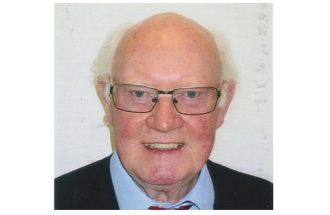
| Degree: | PhD |
| Email: | [email protected] |
| Thesis title: | Ireland’s Gypsum and Brick Field: A study of the social and industrial development of a mining community, 1800-1960 |
| Short synopsis of thesis: | The purpose of the study is to investigate and relate the nexus of the community and its industries over time, and to illustrate the changing impact resulting from their inter-relationship.
My PhD thesis focuses on a local community in the north-east of the Republic of Ireland which has been distinguished for more than two hundred years by its commercial deposits of gypsum and brick clay. The field extends southwards for 12km as a narrow belt from Carrickmacross via Kingscourt, reaching Kilmainhamwood in north Co. Meath. Both minerals have been extracted at various locations and periods from within the three counties, while always remaining as separate manufacturing entities, whose products serve the construction industry. The structure of the thesis centres on a series of mineral leases. Their negotiated terms provided the steppingstones for the origin and progression of the study. For example, from the initial contract agreed in 1825 with the landlord, Evelyn John Shirley, a unique view emerged of his pre-famine tenant community. The Wyndham Land Act (1903) marked the pivotal point of the study when control of mineral rights was transferred to the Irish Land Commission. Soon, the tenant proprietors were among the shareholders of the first mineral company established in independent Ireland. In time, the minerals of the study assumed a national and international importance in the political and economic processes which contributed to the industrialization of Ireland. The Shirley family papers at PRONI and Warwick, and the industry files in the National Archives, Ireland, are my principal primary sources. |
| Supervisor: | Professor Terence Dooley |
| Academic biography: | I am a native of the Kilmainhamwood district of north Meath, parish of Kingscourt, where I was born in 1946. I attended Nobber NS and then St Finian’s Diocesan College, Mullingar, where I completed Junior Certificate. At St Patrick’s Classical School, Navan, I completed Leaving Certificate in 1965. I graduated from St Patrick’s Teacher Training College, Drumcondra, in June 1967. Later, I commenced my primary teaching career in St Canice’s CBS, NC Rd, Dublin, one of the O’Connell Schools.
I graduated BA from UCD in 1973 with Gaeilge, History and English, the subjects most enjoyed during teacher training. I also read first year archaeology and reluctantly chose to omit it. I completed the H dip in Ed at MU in 1974. I graduated MA in 2005 from MU which was a most enjoyable experience. My thesis was entitled, Gypsum mining and the Shirley estate in south Monaghan, 1800-1936. I am presently ‘mining’ in fourth year PhD and have added the brick industry to my research agenda. My teaching career entailed periods of rural and urban settings; roles in regular classwork and administration; settings in socially disadvantaged and ‘comfortable’ environments; and the challenge of pupils with severe learning difficulties. My most lasting memories are of a department project, ‘Breaking the Cycle’ – an inner-city study of generational dependency, linked with cyclical educational failure. Throughout my career I have always been closely involved with school sports/teams. I retired in 2011. |
| Research interests: | Local and national history/politics, nineteenth- and twentieth-century Ireland; contemporary poetry; World War Two and the Holocaust; historical architecture; traditional Irish musicians/music. |
| Publications: | Gypsum mining and the Shirley estate in south Monaghan, 1800-1936 (Maynooth Studies in local history series); Patrick Byrne of Magheracloone, leading harper and distinguished celebrity of the nineteenth century in Clogher Record (2010). |
| Teaching: | 1967-2011 |
| Professional associations/affiliations: | Irish National Teachers Organisation |

| Degree: | PhD |
| Email: | [email protected] |
| Thesis title: | An examination of the Irish in South Africa, c. 1921–1961 |
| Short synopsis of thesis: | The study of Irish migration is a burgeoning area of research. Across Irish history, millions of individuals left the island’s shores for many reasons. This culture of migration makes it so that one cannot tell Ireland’s history without considering the millions of Irish who have lived beyond its borders.
Within the study of nineteenth- and twentieth-century Irish migration, several ‘hotspots’ have generally dominated the discourse. North America, Australia and Britain have emerged as the most popular areas of research due to the large number of Irish that emigrated to these regions and the continued Irish cultural attachment that still can be found in their respective societies. However, we must also be aware of the other regions of Irish migration that have not been considered in the same detail, as they too can reveal important insights into the experience of Irish migrants overseas. South Africa, for example, has largely remained unscrutinised and is often omitted entirely from broad discussions of Irish migration. This project seeks to address this lacuna and examine the Irish community in South Africa during the twentieth century. It will account for a group whose loyalties were divided between two vastly changing, and diverging, regions. The thesis will move the historiography of the Irish South Africans beyond the early twentieth century and explain how the national identity of a group, which was never more than a ‘minority within a minority’, was impacted and moulded within an ever-changing world and society that was redefining itself along racial lines. |
| Supervisor: | Professor Filipe Ribeiro de Meneses |
| Co-Supervisor: | Dr Jonathan Wright |
| Academic biography: | I am interested in Irish migration during the nineteenth and twentieth centuries and twentieth-century South African history. My thesis centres on the experience of the Irish community in South Africa during the twentieth century and, by adopting a transnational approach, considers how developments in both Ireland and South Africa impacted upon the group’s identity.
In 2019 I was awarded a First Class honours MA in European History from Maynooth University. My MA thesis, which examines how colonial legacies in southern Africa continued to influence British politics during the mid-to-late twentieth century, allowed me to continue developing my interest in African history. Throughout my PhD, I have engaged in various extra-curricular activities. For instance, in 2021 I co-organised the annual Irish History Students’ Association conference and subsequently co-edited the proceedings. I have also produced the 2021 and 2022 bibliographies for the journal Irish Economic and Social History. |
| Research interests: | Irish in South Africa, Irish migration, global Irish community, South Africa, identity, concepts of Irishness, transnationalism, race, colonial legacies |
| Publications: | Veronica Barry and Tom McGrath (eds), Retrospect 2021: The Journal of the Irish History Students’ Association (2021). |
| Conferences: | Conference organisation: Irish History Students’ Association Conference (Online) 11–13 March 2021 Conferences: Greater Ireland and Greater Portugal - Lisbon, Portugal, 7–9 April 2022 Commemorations: then, now and to come (Online) 23–24 June 2022 |
| Awards/Scholarships: | 2018: MU History Department Taught Masters’ Scholarship 2020: MU John and Pat Hume Postgraduate Scholarship 2021: Irish Research Council Postgraduate Scholarship |
| Teaching: | I have been a Graduate Teaching Assistant on a number of undergraduate modules such as HY 121: Introduction to medieval history: Vikings and Normans, HY 122: Making the modern world: Themes in history and HY 205: Ireland in the Eighteenth Century. I have also lectured on the Second Year undergraduate module HY 293: Europe 1911–1945. |

| Degree: | PhD |
| Email: | [email protected] |
| Thesis title: | German-Austrian Great War Officer Veterans in Military Service, 1918-45 |
| Short synopsis of thesis: | My thesis is an examination of military culture, institutional memory and national identity in Austria in the years following the collapse of the Habsburg Dynasty in 1918. I am focussing on the experiences of Austrian Great War officer veterans who would go on to serve in the German military following Hitler’s annexation of Austria in 1938 (Anschluss).
The Austro-Hungarian officer corps closely mirrored the multi-lingual/ethnic nature of the empire. When the empire collapsed, the mostly German-speaking heartlands of the Empire were formed into an Austrian Republic and a new Austrian army (Bundesheer), almost exclusively made up of German-speakers, was formed. Austrian officer veterans of the Great War constituted most of the officer corps in this new force. These officers were forced to navigate a completely new and adversarial political scene wherein the political left and right struggled for control of the armed forces with both sides desiring to reshape the army in their own image. Following the Anschluss, many Austrian officer veterans were transferred into the German armed forces and served as high ranking Wehrmacht officers during World War II. My research takes the form of a generational history. I have chosen a study group of twenty German-speaking Great War veterans who served in the German armed forces from 1938. Using the careers of these men as a lens, I aim to show how Austrian military culture evolved (and how some Habsburg traditions remained) from the collapse of Empire in 1918, up to the Anschluss and the end of World War II. |
| Supervisor: | Dr John Paul Newman |
| Co-Supervisor: | Prof Filipe Ribeiro de Meneses |
| Academic biography: | I am a final year PhD student whose research interests lie in military culture and cultures of war/violence, institutional memory and national identity in Central and Eastern Europe in the first half of the twentieth century.
I am a current holder of the Irish Research Council’s Government of Ireland Postgraduate Scholarship Award. I have previously held the John and Pat Hume Postgraduate Scholarship from Maynooth University. I completed a BA (Double honours, History/German) at Maynooth University in 2014 and subsequently a two-year taught MA in European History (also at MU). My MA dissertation written under the supervision of Prof Filipe Ribeiro de Meneses was titled ‘Systemizing a culture of Violence? The SS and its Junkerschulen 1934-1945’ The dissertation examined the manner in which the SS created a culture of violence within its special training schools (Junkerschulen). I found that the violent origins of the SS coupled with targeted ideological training helped to create a culture of violence within the SS that was distinct from that of the National Socialist regime in general. I began my PhD in September 2019. I have proficiency in several languages including German (C2), French, Spanish and Russian (all B1). |
| Research interests: | Military Culture, Violence, Austria, Central Europe, 1914-45, Imperial Legacies |
| Conferences: | “The army of Austria […], in many ways is little better than a red guard”: The Austrian Officer Corps, Between Social Democracy and Monarchism in the Wake of the Collapse of the Habsburg Empire, 1918-1927 at the German History Society Annual Conference 2022, Sheffield Hallam University, UK. 9 September 2022 Insurgency and Counter-insurgency in South-eastern Europe During the ‘Greater War’, 1912-1923 (co-presentation with Dr John Paul Newman) at the IARCEES Annual Conference, Maynooth University, 17 September 2022 |
| Awards/Scholarships: | 2021-present: Irish Research Council Government of Ireland Doctoral Scholarship 2019-2021: John and Pat Hume Doctoral Scholarship from Maynooth University 2014: Postgraduate Scholarship Award from Maynooth University 2014 and 2015: MU History Department Scholarship |
| Teaching: | September – December 2021: Lecturer in MU History Department on HY131 The Practice of History January 2017- May 2021: Lecturer in European Studies at MU on modules ES151: An Introduction to European Studies and ES152: ‘Big Ideas’ in European Studies. Semester one 2016-17: Graduate Teaching Assistant, MU History Department, tutoring on Europe in the Twentieth Century 2014-15 and 2015-16: Graduate Teaching Assistant, MU History Department |
| Professional associations/affiliations: | German History Society – Member Irish Association of Russian, Central, and East European Studies - Member |
| Social Media: |
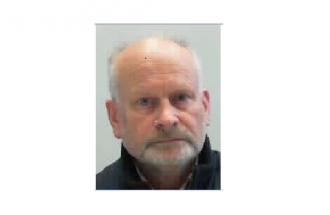
| Degree: | PhD |
| Email: | [email protected] |
| Thesis title: | An Oasis of Democracy? Autonomy and Politics of Subcarpathian Rus’ in Interwar Czechoslovakia |
| Short synopsis of thesis: | The focus of this research is on Subcarpathian Rus’ between the world wars, when it formed the easternmost part of Czechoslovakia. The project sets out to find answers to the research question: How did the experience of liberal democracy as part of Czechoslovakia influence and modify Rusyn, Ukrainian, Russophile, Magyar, Jewish and Czech outlook and ethos among the population of Subcarpathian Rus’ in relation to autonomy and politics during the period 1918 to 1939? There are important questions here about the position of peripheral Carpathian Rus’ vis-a-vis the central Czechoslovak government, the nature of the nation state, national minorities within nation states, and the experience of democracy in Subcarpathian Rus’. Questions also arise about the durability of democracy in Czechoslovakia in an era of aggressive territorial expansion all around it, and about the permanence and permeability of national boundaries in Central and Eastern Europe. Recovering some of the lost ground of historical research into approaches to autonomy in Subcarpathian Rus’ will allow us to go in new directions in relation to politics, culture, and nationalism in Central and Eastern Europe and allow new perspectives to expand our understanding of the eventual failure of the post-war settlement arrived at in 1919. |
| Supervisor: | Dr John Paul Newman |
| Academic biography: | I graduated from the Maynooth University MA in European History in 2021. In this programme, I completed modules on genocide, cultural history, and the two world wars in Europe. My thesis for the MA was on the EU’s relations with its eastern neighbourhood, specifically with Belarus and Moldova. Before beginning a 34-year career in the Irish Civil Service, I graduated in European Studies from the National Institute of Higher Education (now University of Limerick) in 1977 where I specialised in Russian Studies and French Studies in my final year. This was followed by a research M Litt at the Department of Political Science at Trinity College, Dublin in 1980 where I completed a thesis on Irish-Soviet Trade Relations and Policy. |
| Research interests: | Central and Eastern Europe, Autonomy, Ruthenia, Sub-Carpathian Rus', Transcarpathia, Czechoslovakia, Ukraine, Inter-war period. |
| Teaching: | I completed the University of Cambridge Teaching English as a Foreign Language qualification (CELTA) in 2016 and began teaching English on a part-time basis at the Maynooth Adult Education Centre of the Kildare and Wicklow Education and Training Board (KWETB). Many of the students have recently arrived from Asia, Africa and Eastern Europe, particularly from Ukraine in recent years. During the summer holidays of 2022, I worked as an online volunteer English teacher at Lviv's Catholic University of Ukraine's English Summer School. |
| Degree: | PhD |
| Email: | [email protected] |
| Thesis title: | An Examination of Estate Education in Ireland, 1831-1878 |
| Short synopsis of thesis: | Education in nineteenth-century Ireland was fraught with religious tension. Having experienced decades of educational prohibitions under the Penal Laws, the Catholic Church regarded education and religion as inextricably linked.
In the early years of the nineteenth century, the legacy of the Penal Laws was compounded by the proselytising endeavours of Evangelical societies. With the growth of Evangelical Protestantism throughout Europe, Evangelical societies made their presence felt in Ireland. Overtly proselytising groups, such as the London Hibernian Society, used education as a vehicle to spread what they regarded as ‘the sacred scriptures’ and ‘the light of God’s word’ to young Catholics. Their efforts drew in intense opposition from Roman Catholic clergy, who resented children of their denomination availing of tutelage in Protestant-run institutions. In a bid to diffuse increasing religious tensions around education, the secular National School System was founded in 1831. Despite its intended purpose, the introduction of non-denominational schooling resulted in resistance from Roman Catholics and Protestants alike. With growing discontent on both sides, the Protestant landed class began to take a leading role in education, erecting independent schools on their demesnes. However, the attendance of Catholics at schools that were founded and staffed by Protestants was met with staunch opposition from Roman Catholic clergy, who denounced the schools as ‘proselytising institutions’. Focusing on schools established by landlords countrywide, this study examines the validity of these claims, with the primary aim being to examine how this system of education operated and the motivations behind it. |
| Supervisor: | Dr Sarah Roddy |
| Co-Supervisor (if applicable): | Professor Terence Dooley |
| Academic biography: | I obtained a First-Class Honours BA in English and History from Maynooth University in 2020, and undertook a Professional Masters in Education the same year, qualifying as a post-primary school teacher in 2022. I completed an MA in Irish history in 2024, graduating with a First-Class Honours, and I am now a first year PhD student in the Department of History. |
| Research interests: | Education, country house studies, social history, Irish history, childhood, religion, nineteenth century |
| Publications: | |
| Conferences: | |
| Awards/Scholarships: | Stackallan Taught Masters Scholarship - 2023 Stackallan Doctoral Scholarship - 2024 |

| Degree: | PhD |
| Email: | [email protected] |
| Thesis title: | Workers and Stalinist Cities: A Case Study of Leipzig and Plzeň 1945-1960 |
| Short synopsis of thesis: | Soon after the Second World War, the German Democratic Republic and Czechoslovakia fell under the rule of the Soviet Union and Josef Stalin, leading to the adoption of socialist ideologies. Socialism was seen as the way of the people, promising equality and economic stability to all levels of society including the everyday workers. By the late 1940s both countries had seen the election of their local Communist Parties to power and were set to follow the model of recovery laid out by Stalin in his Five-Year Plans.
However, this was not as smooth since workers in industrial cities such as Leipzig and Plzeň experienced changes in terms of their culture, family dynamics, and workplace under a new form of Socialism that evolved from Josef Stalin’s control on the Eastern European Bloc known as Stalinism. Stalinism focused on industrial growth while utilising propaganda and terror to ensure a ‘unified’ society. This focus resulted in the isolation and disillusionment of workers throughout the 1950s, leading to workers accessing illegal Western media and information, demonstrations in the forms of 1953 Workers protests, and the practice and discussion of non-Stalinist ideology. This case study of two industrial cities, Leipzig and Plzeň, aims to understand how workers adapted to or rejected the Stalinist regimes imposed on them by examining Communist social and cultural programs, changes to the nuclear family and the workers unions. By doing so, this thesis will deepen understanding of the influences that workers were engaging with and their reactions to these. |
| Supervisor: | Dr John Paul Newman |
| Academic biography: | Currently I am a doctoral student and Graduate Teaching Assistant with the History Department, Maynooth University. My research interest lies in post-World War II Eastern Europe with a focus on the study of workers, resistance, and Stalinism in the 1950s. I completed my undergraduate degree at the University of Limerick in 2019 and a Masters in European History at MU during 2021-22. I commenced my doctoral programme at MU in 2022. |
| Research interests: | Workers, Stalinism, Socialism, post-war Eastern Europe, resistance, regime changes, cultural history, social history |
| Awards/Scholarships: | MU John & Pat Hume Tuition Scholarship 2022 MU History Department Taught Masters Scholarship awarded in 2020 |
| Teaching: | Graduate Teaching Assistant with MU History Department |
| Professional associations/affiliations: | Member of the German History Society |
| Social Media: |
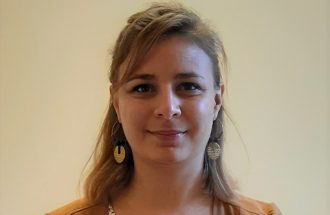
| Degree: | PhD |
| Email: | [email protected] |
| Thesis title: | The Irish community of La Rochelle (1602-1789): migration, integration, networks |
| Short synopsis of thesis: | La Rochelle was a major French Atlantic port in the early-modern period. During the latter half of the seventeenth century, the port was the second most important for Irish trade in France, after Saint-Malo. Throughout the eighteenth century, the city developed its economy through Atlantic trade between Europe, Africa, and North America. It was, along with Nantes and Bordeaux, one of the major ports involved in the slave trade.
From the 1630s, an Irish community developed in La Rochelle. Dominated by a Protestant elite, the city may seem a surprising destination for the overwhelmingly Catholic Irish migrant population. Nevertheless, the Irish community in La Rochelle expanded between 1650 and 1710, and the émigrés quickly integrated into Rochelais society. Some individuals, such as Richard Creagh, Guillaume Lee, Robert Butler and Denis MacCarthy achieved prosperity, especially through their lucrative trading networks. This research explores for the first time the history of the Irish men and women in La Rochelle from 1602 (beginning of Irish mass migration after the Battle of Kinsale) to 1789 (end of the Ancien Regime in France). First, it traces Irish migrant influxes into the city, and profiles the community’s composition, settlement, and expansion. It analyses the integration of the Irish into their receiving society, exploring whether they evolved into a cultural subset, and if so, what made them distinctive. Particular attention focuses on their trading activities and networks with Ireland and England, and other Irish immigrants throughout Europe and the Atlantic world. |
| Supervisor: | Professor Marian Lyons |
| Academic biography: | I graduated with an MA in Heritage Management in 2013 at the Université de Bretagne Occidentale (France). I worked subsequently for four years in museums and cultural institutions in France.
In 2017 I moved to Ireland to pursue a career in the Heritage industry and became increasingly interested in the history of Franco-Irish relations and migration. I was awarded an MU John & Pat Hume scholarship to undertake my doctoral studies in September 2021. In September 2022 I was awarded a Government of Ireland Postgraduate scholarship. |
| Research interests: | Migration, integration, networks, trade, identity, Irish people outside Ireland, social history, economic history |
| Awards/Scholarships: | Irish Research Council Government of Ireland Postgraduate Scholarship (2022-2025) MU John & Pat Hume octoral scholarship (2021-2022) |
| Teaching: | Graduate Teaching Assistant with MU History Department since September 2022, tutoring first year students on modules HY121 Introduction to medieval history and HY122 Globalization in the Modern World |
| Social Media: |